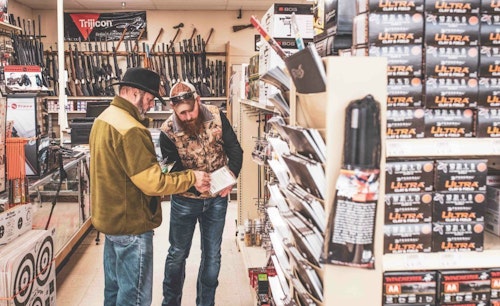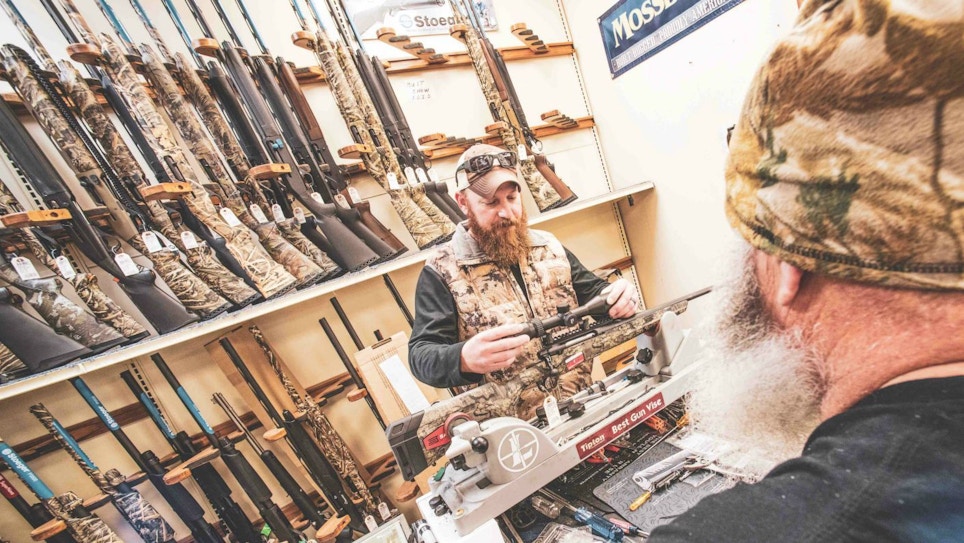During my days as a sporting goods associate, I was top salesman more months than not for two years running. This isn’t mere speculation, but empirically provable, as sales were closely tracked, and frequent performance evaluations were based on those numbers. We also made a small commission (incentive really) on all sales, plus end-of-year bonuses based on annual sales. Several promotions came my way in relatively short order due to this performance and significantly bolstered bimonthly paychecks via commission money.
But I am not a natural salesman. I’d starve selling anything door to door or as an ad salesman for a print magazine. I’m inherently shy, perhaps even a bit antisocial. I will definitely take “no” for an answer, and it is not in my nature to be pushy when dealing with people.
So, how did I manage such steady sales? The answer comes easily, if not the means to carry it through: in-depth knowledge of nearly all products we sold. This arrived through decades of full-time outdoor writing and the detailed information that job provided. I could hardly have written, conservatively, 50-plus “equipment-roundup” features annually without gleaning some amount of insight — be that for arrows or ammo, new bows or rifles, binoculars or rangefinders, stands or blinds and so on. I’d been immersed in gear minutia so long I could effortlessly quote grains per inch (gpi), inside diameters and the component specs on any arrow made; bullet design and muzzle velocities of common firearms ammunition; exit pupils, twilight factors and purging gases used for most optics brands — and on and on. This gave me an obvious leg up.
Truth be told, I was terrified to be thrust into that sales job, but the mortgage had to be paid. Yet that vast reservoir of product knowledge gave me confidence while interacting with customers and honestly answering their often pointed questions. My blunt honesty and encyclopedic insight into everything hunting put me in high demand.
Knowledge Is Power
Put yourself in a customer’s shoes for a moment. People contemplating parting with hard-earned cash to invest in something they will depend on to bring them success or increased enjoyment during recreational respite do not want to hear a mealy mouthed response to a question borne of very real concerns.
Imagine you are buying a new GPS, springing for, say, $400.
“How does it work?” you ask. “Does it accept XMaps cards?”
“Well, I’m not really sure,” says the unprepared salesman, “Let’s look at the directions.”
This doesn’t exactly instill trust. If I wanted to read instructions, I would do so on my own time and avoid the inconvenience of having to drive to a store. No sale!
I understand my position is a bit unique. A sales associate can hardly be expected to invest a decade of slim pickings to become a “made man” in the outdoor writing dodge simply to elevate their sales pitch. But if you’re going to sell the outdoors, you really need to study the products you are pushing to help provide informed sales pitches and, more importantly, put customers at ease with knowledgeable answers to their inevitable questions.
Yes, I understand this requires a bit more effort, namely time spent studying off the job. I was there, too — recall I made commission. So when confronted by customers interested in, just as an example, all that super-expensive (big commissions!) Thule car carrier/roof-rack gear we sold, I found myself sadly lacking. I lost $1,000 to $1,500 sales because I couldn’t answer basic questions or agree to install purchased product. So I studied. I volunteered to attend a Thule workshop on one of my days off (when I should’ve been writing). I became the in-store Thule expert. It put more money in my pocket.
And yes, I also understand not all sales people earn commission, so the incentive for extracurricular activities isn’t as pressing. But no matter the job, I’ve always believed you should strive to be the best you can be. It makes you a more valuable asset; it can lead to promotions and makes your workplace more appealing to visiting customers. Those whose knee-jerk response is something to the effect of, “Yea, whatever, no one ever notices anything I do above and beyond,” are destined to remain where they are.

You don’t have to absorb all of this information overnight — you aren’t cramming for a school exam after all. Maybe start with something you find interesting, seeking to delve deeper into what makes those products tick. You might then move on to items that prove most popular in the department you are assigned to if you work in a larger outlet. Ask yourself where you are most lacking in knowledge, or think of specific product categories you find yourself unable to answer questions about — maybe GPS units, optics, ammo or archery. Don’t be afraid to venture outside your comfort zone. Do you believe, for instance, I really cared anything about Swedish-made hipster roof racks? I’m a pickup truck kind of guy.
When I worked retail and offered this advice to work associates, the same people who could relate the plots of all the latest TV shows were generally also those who would tell me they didn’t have time to study products. I know, reading product brochures/instruction manuals and watching YouTube instructional videos isn’t as fun as the latest episode of your favorite Netflix show, but if you truly want to become a better salesman, it’s time well spent.
I also found it beneficial during slow days or downtime to simply handle product thoroughly. This is actually enjoyable for true gear junkies, and it gives you a good background should a customer ask for assistance installing batteries in, say, a predator-calling unit. After all, a love of the outdoors and the gear it inspires is likely what first attracted you to this vocation.
Photos by Bill Konway






